Generation Europe
About Policy Network
Policy Network is an international thinktank and research institute. Its network spans national borders across Europe and the wider world with the aim of promoting the best progressive thinking on the major social and economic challenges of the 21st century.
Our work is driven by a network of politicians, policymakers, business leaders, public service professionals, and academic researchers who work on long-term issues relating to public policy, political economy, social attitudes, governance and international affairs. This is complemented by the expertise and research excellence of Policy Networks international team.
A platform for research and ideas
Promoting expert ideas and political analysis on the key economic, social and political challenges of our age.
Disseminating research excellence and relevant knowledge to a wider public audience through interactive policy networks, including interdisciplinary and scholarly collaboration.
Engaging and informing the public debate about the future of European and global progressive politics.
A network of leaders, policymakers and thinkers
Building international policy communities comprising individuals and affiliate institutions.
Providing meeting platforms where the politically active, and potential leaders of the future, can engage with each other across national borders and with the best thinkers who are sympathetic to their broad aims.
Engaging in external collaboration with partners including higher education institutions, the private sector, thinktanks, charities, community organisations, and trade unions.
Delivering an innovative events programme combining in-house seminars with large-scale public conferences designed to influence and contribute to key public debates.
www.policy-network.net
GENERATION EUROPE
How Young Europeans
Need to Step Up and
Save Their Continent
Sandro Gozi
Published by Rowman & Littlefield International Ltd.
Unit A, Whitacre Mews, 26-34 Stannary Street, London SE11 4AB
www.rowmaninternational.com
Rowman & Littlefield International Ltd. is an affiliate of Rowman & Littlefield
4501 Forbes Boulevard, Suite 200, Lanham, Maryland 20706, USA
With additional offices in Boulder, New York, Toronto (Canada), and Plymouth (UK)
www.rowman.com
Copyright 2018 Sandro Gozi
All rights reserved . No part of this book may be reproduced in any form or by any electronic or mechanical means, including information storage and retrieval systems, without written permission from the publisher, except by a reviewer who may quote passages in a review.
British Library Cataloguing in Publication Data
A catalogue record for this book is available from the British Library
ISBN: PB 978-1-78660-792-8
ISBN: eBook 978-1-78660-793-5
Library of Congress Cataloging-in-Publication Data
Library of Congress Control Number: 2018930808

The paper used in this publication meets the minimum requirements of American National Standard for Information SciencesPermanence of Paper for Printed Library Materials, ANSI/NISO Z39.48-1992.
Printed in the United States of America
Contents
to Jo Cox
I want to thank Francesco Gualdi, with whom I share politics, music and many hours of work each day, for his valuable contribution.
And thanks to Franois Lafond, who worked on the French edition of the book. With him, I have long shared European commitments and many initiatives here and beyond the Alps.
I also want to thank all the Policy Network team: they believed in the idea of this book and did a remarkable job in supporting it.
Together, we played as a team, as we should always do in Europe and for the Europe that we want.
The first SMS woke me up at five in the morning. It was Matteo Renzi, the Italian prime minister at the time, asking me if I had more data. I immediately understood that all the calculations, the exit polls, the forecasts and the data of the previous night meant nothing.
Brexit had just happened.
It was at that time on 24 June 2016 that I realised, for the first time, a member state had decided to leave the European Union. I immediately spoke with my friend Ed Llewellyn, then David Camerons chief of staff at No 10. He confirmed that what seemed impossible just the night before had indeed happened, represented by the smirk of Nigel Farage and the rejoicing of Michal Gove and Boris Johnson.
That day I was in Luxembourg for the general affairs council. Brexit was on the agenda: based on the forecasts, we were supposed to be evaluating how to reset the EU in the event of a remain win. But our forecasts were wrong; foreign affairs ministers began to arrive at the informal breakfast before the council, now a pointless occasion.
I remember doing an interview with BBC radio. They asked me what was going to happen after Brexit. I got by with a standard answer, but the reality was different: we knew we were entering uncertain and unknown territory. London did not seem prepared to handle the situation, and neither was Brussels. Obviously, Euro-destroyers from all over Europe were rejoicing and hoping to use the exploit the apparent momentum caused by the Brexit vote.
I had never imagined a member state leaving the EU. My first doubts arose in Stockholm, a month before the referendum when, during a Policy Network conference, my friend Roger Liddle confessed to me that he was concerned about the result. I trust Rogers expertise on British politics and society, and his pessimism concerned me.
On various occasions, I have had the chance to live in the UK. The last time was in 1994. Those were the years of Cool Britannia, during the explosion of Britpop, of Tony Blair and New Labour: an era brilliantly built up by one of the brightest minds in British politics, Peter Mandelson. After the dark days of the 1970s and the conflicts of the Thatcher years, Britain seemed to be undergoing something of a rebirth, its soft power growing. London during the 1990s was innovative and happening, acting as a magnet to attract young people from all over Europe.
I was among those young people. I lived in Rosebery Avenue in Islington (20 years later 75 per cent of voters in Islington voted to remain; a small comfort). I studied at the London School of Economics and played squash with Indian and Pakistani friends. At the LSE, my macroeconomics professor was Willem Buiter, who later joined the Bank of England monetary policy committee. I remember he often wore a white T-shirt with the drawing of a European tie, blue with 12 stars, under a black suit jacket. Back then, more than two decades ago, his lessons explained the need to introduce the single currency; but, at the same time, it was already clear that the eurozone was incomplete. All these issues quickly moved from economics to politics.
I witnessed a London that was undergoing a renaissance. Now London is completely transformed: I recently went back to LSE for a conference. The squash courts are now the, construction site of a new student office. I am sure it will be beautiful but at least for me, squash courts were much more romantic.
I have one simple question: what happened to the Great Britain I remember clearly? What has changed in the intervening years to cause a majority of Britons to vote to leave the EU?

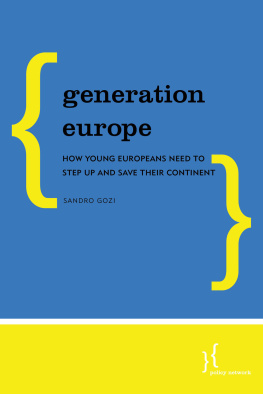

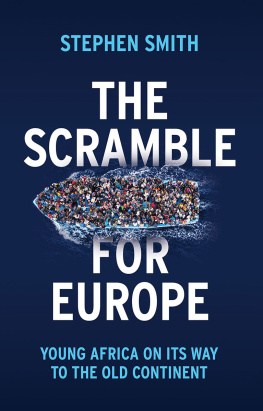
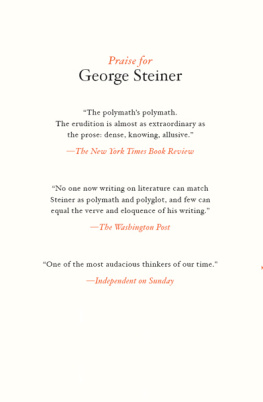
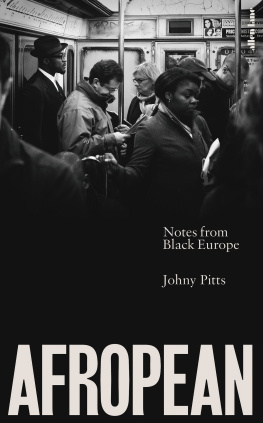


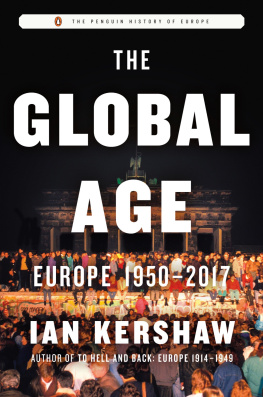

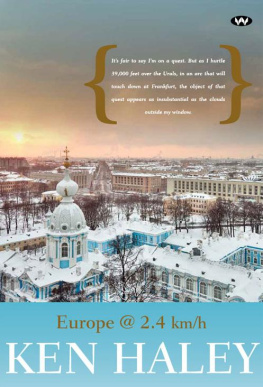


 The paper used in this publication meets the minimum requirements of American National Standard for Information SciencesPermanence of Paper for Printed Library Materials, ANSI/NISO Z39.48-1992.
The paper used in this publication meets the minimum requirements of American National Standard for Information SciencesPermanence of Paper for Printed Library Materials, ANSI/NISO Z39.48-1992.